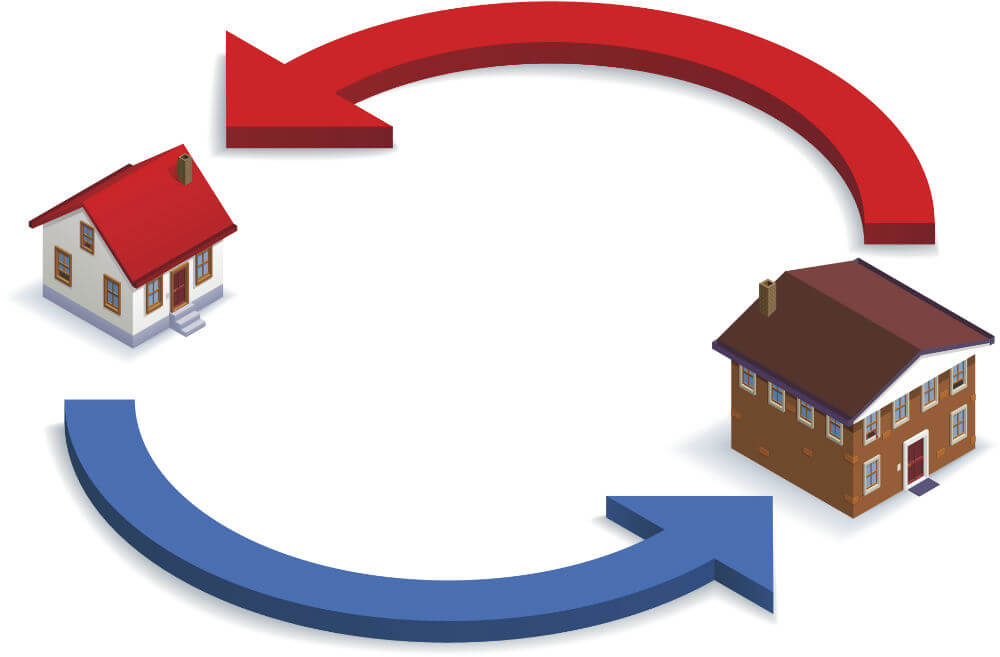What every homeowner should know
Real estate strategies for 2015
Advertisement
Real estate strategies for 2015

I’ve written a few pieces lately that prompted quite a lot of interest and, at times, criticism. The general gist is that the predictions are faulty, always end up being wrong, or I’m just schilling for “the man”—the guy who’s going to make a bundle on your loss. I wonder if these critics also ignore stock market predictions, ETF valuations, market analysis, and general economic information? For all we know, these could also be made up numbers published so that someone else can get rich.
I’m not trying to say: Throw caution to the wind and buy, buy, buy! What I am trying to say is that if—and I stress the if—you are in the market to buy or sell a home, there’s some good, practical information you can use to minimize the downside risk and, hopefully, increase the upside return. For some, that might mean walking away from real estate as an investment. That’s good, particularly if these investments decisions are part of a larger overall plan. But for others it’s not so easy. For instance, what should current home owners do? The purely practical, mathematical decision would be to sell and rent thereby cashing in on the equity in your current when the market is high and waiting it out until the real estate market settles. At that point, I could buy low and really put into practise sound financial planning strategies. It’s great advice, unless, of course, you see your home as more than just an investment. And, quite frankly, I do. So, let’s get down to practicalities: What’s a current home owner to do in this frothy real estate market?Well, if you’re selling your home this year and you want the best price then try and list it by March or April. Not only will you capitalize on the historically strong spring housing market, but you’ll probably also gain due to people scrambling to get into the housing market before rates go up.
If you’re close or currently in retirement and the equity in your home plays a significant role in your retirement earnings, then you’ll really want to consider downsizing this year.“If mortgage rates do go up, there’s a chance your house will be worth less, so seriously consider cashing in and selling in 2015,” advises Ted Rechtshaffen, president and CEO at TriDelta Financial. “Your nest egg really will feel the sting between selling your home now for a $1 million versus selling three years from now for $700,000.”
Whether you’re renewing or refinancing, you’ll need to decide between a variable- or fixed-rate mortgage. In the past, those who opted for variable ended up paying less, but these days the difference between fixed and variable is so small it’s not worth the uncertainty, says Rechtshaffen. “Don’t get greedy. Just take a fixed-rate mortgage that’s under 3% and be thrilled.”
Also, you may want to try and complete the paperwork before the end of the second quarter—or June 30—when the first interest rate rise is expected to occur. Just don’t time the market, says Rechtshaffen.Home owners looking to get ahead of these predicted changes may want to consider making mortgage prepayments. When you put extra money towards your mortgage, it’s like getting a risk-free, after-tax return of 2% to 3%—more than you’d get with any other risk-free investment out there, such as a GIC or savings account. Plus, the less you owe when rates go up, the better off you’ll be.
Of course, your home is more then bricks and mortar and more than just dollars and cents on a spreadsheet. It’s your castle and, as Rechtshaffen wisely points out, “life and lifestyle” factors are just as important in home buying decisions (note: this assumes the house is not purely an investment property). As Rechtshaffen points out: as long as you can afford your payments and you’re in it for the long term then “don’t be too concerned about the correction.” Read more from Romana King at Home Owner on Facebook »Share this article Share on Facebook Share on Twitter Share on Linkedin Share on Reddit Share on Email
Thank you for this educational advice.